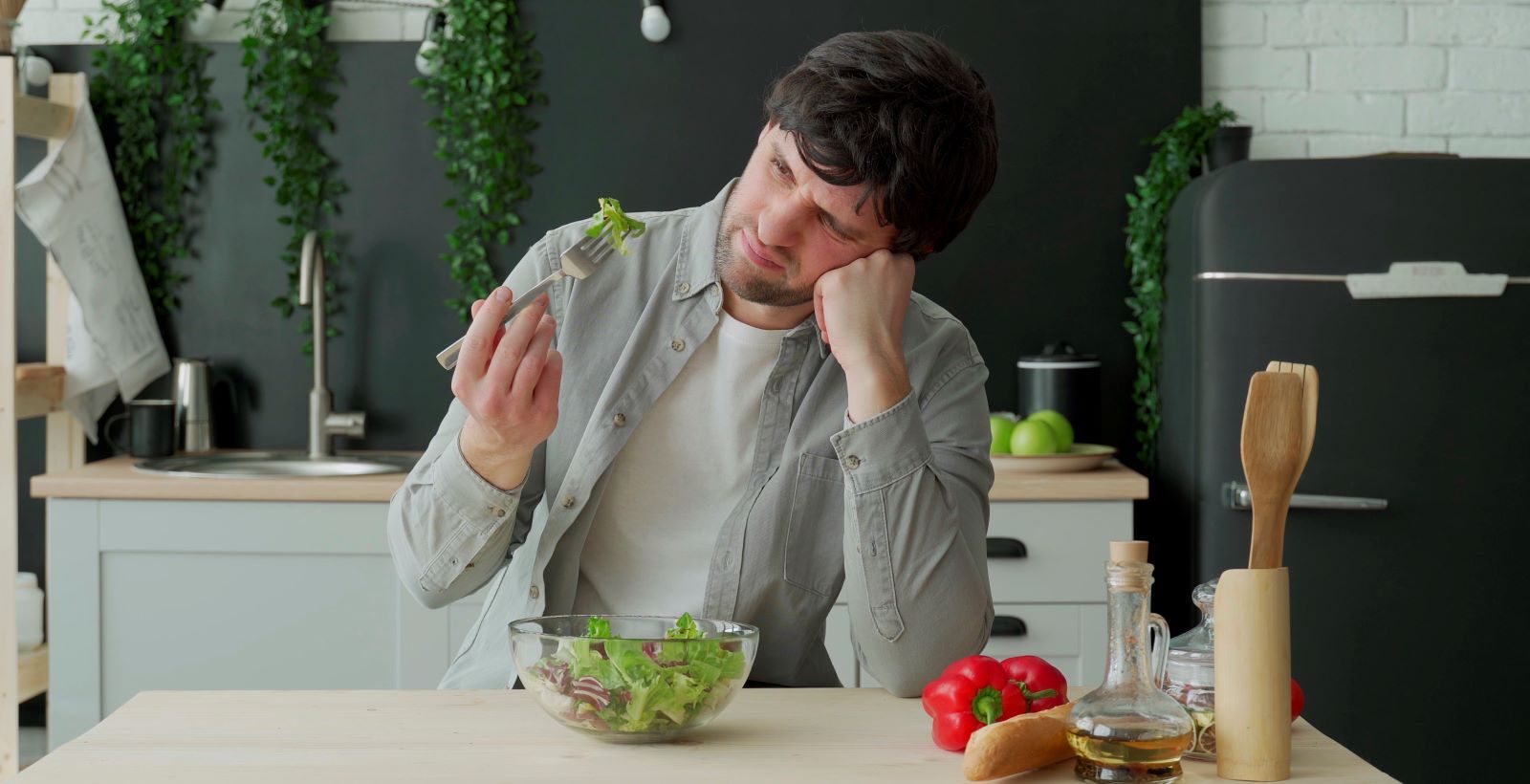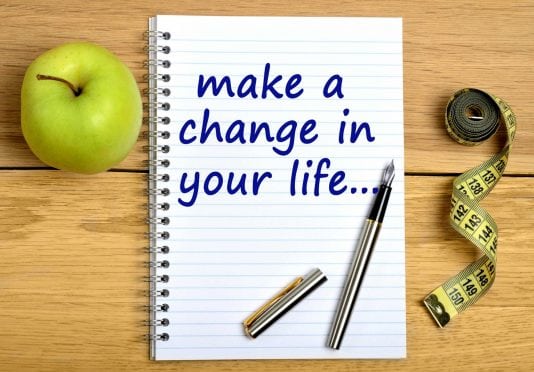Sometimes you’re so hungry you could eat a bear, and sometimes you can’t bear the thought of eating. What gives?
Your appetite is ruled by a hormone called ghrelin, which is produced in the stomach. It tells the brain that it is time to eat. But there are plenty of reasons you might have no appetite, says Jamie Allers, RD, a registered dietitian with Hartford HealthCare’s Digestive Health Institute.
Allers shares a few reasons why you might have no appetite, and strategies you can use to maintain your digestive and nutritional health, no matter how hungry you are.
You’re sick
Feed a cold, starve a fever. Or is it the other way around?
Either way, when you’re under the weather, your appetite often drops. Part of this is physical – your white blood cells are releasing cytokines that help fight off infection. These chemicals are one of the reasons you might have no appetite. Bacterial infections like pneumonia and strep can also lead to a dip in hunger.
What you can do: “You should definitely prioritize hydration when you’re sick and you don’t feel like eating,” Allers says. If you aren’t eating meals you likely aren’t drinking as much as you should be. And when you’re sick, you really need good hydration.
“Think about foods that have fluids,” she suggested, like broths, soups, and smoothies. Soft foods like yogurt might be more appealing to your palate. “Meals might feel overwhelming, so go with things like that,” she suggests.
You’re stressed or anxious
Stress causes your body to release a hormone called epinephrine, also dubbed adrenaline. This can squash your appetite. The flip side of this is stress eating. Persistent stress can cause your body to release cortisol, a hormone that revs up appetite.
What you can do: “If you are experiencing stress or anxiety and it’s affecting your appetite, it’s important to think about food as fuel rather than pleasure,” Allers says. She recommended creating a plan to eat meals, and even setting alarms on your phone as reminders that it’s time to eat. Prepping meals ahead of time can also ease the stress associated with shopping and cooking.
Planning ahead is also great for managing stress eating, she says. “If you have good food already available, then you can eat that and it will help you avoid hitting the fast food or snacks instead.”
You’re taking a prescription
Lots of medications have gastrointestinal side effects, like nausea, stomach pain, or diarrhea. That can make you want to not eat. And narcotics like codeine and morphine—as well as some antibiotics—are known appetite killers.
What you can do: “When it comes to managing appetite side effects caused by a prescription, I go with ‘something is better than nothing,’” Allers says. “If you just really don’t want to eat, at least have a protein shake or protein bar. Those are better options than not eating anything.”
If a medication is making you nauesous, “go for a bland diet. Oatmeal, scrambled eggs – one-ingredient foods. Soft foods. And if you are on long-term medication you definitely need to talk to your doctor about your low appetite and the side effects you are experiencing.”
You’re hot
It’s summertime. It’s sweltering out. Your body produces heat when eating. If temperatures are unbearably warm, you’ll feel less inclined to dig into a meal and raise your own internal temperature. And the flip side, when it’s cold you want to load up on heavier foods and meals.
What you can do: “I hear that a lot from patients,” Allers says, “that the seasons affect their eating. There are types of foods people like in summer and types in winter. And in winter you might not be drinking enough water because it’s not hot outside.”
Allers says that seasonal eating is a great way to eat what’s fresh and local to you, and when it’s hot out, go for lighter meals, raw veggies, grilled chicken or fish.
> Want more health news? Text StartHere to 85209 to sign up for text alerts
You’re still full from lunch (or breakfast, or that snack in the car)
Overeating at one meal, or loading up on snacks in the middle of the afternoon, can have a domino effect on your body. If you have a big lunch, and are too full at your usual dinner time to eat, it could mean that you find yourself in the kitchen at 10 p.m., grabbing handfuls of chips. Or you wake up in the middle of the night starving and scarf down two bowls of sugary cereal.
What you can do: “It’s important to not skip meals and to maintain that balance throughout your day,” Allers says. Ensuring that you are consuming protein, fiber and a healthy fat at each meal will help your body stay satisfied until the next actual meal. The protein can be either animal or plant, the fiber can be vegetables, fruits or whole grains, and the fat can be a little olive oil, half an avocado, or some nuts.
You have something else going on medically that you aren’t aware of
Other reasons why you might have no appetite could include medical issues including hypothyroidism, diabetes, or even cancer.
What you can do: “If you can’t explain your lack of hunger over a period of a few days, you need to call your provider,” Allers says. “And if you have unexplained weight loss, which is weight loss without trying, then you definitely need to make an appointment.”



